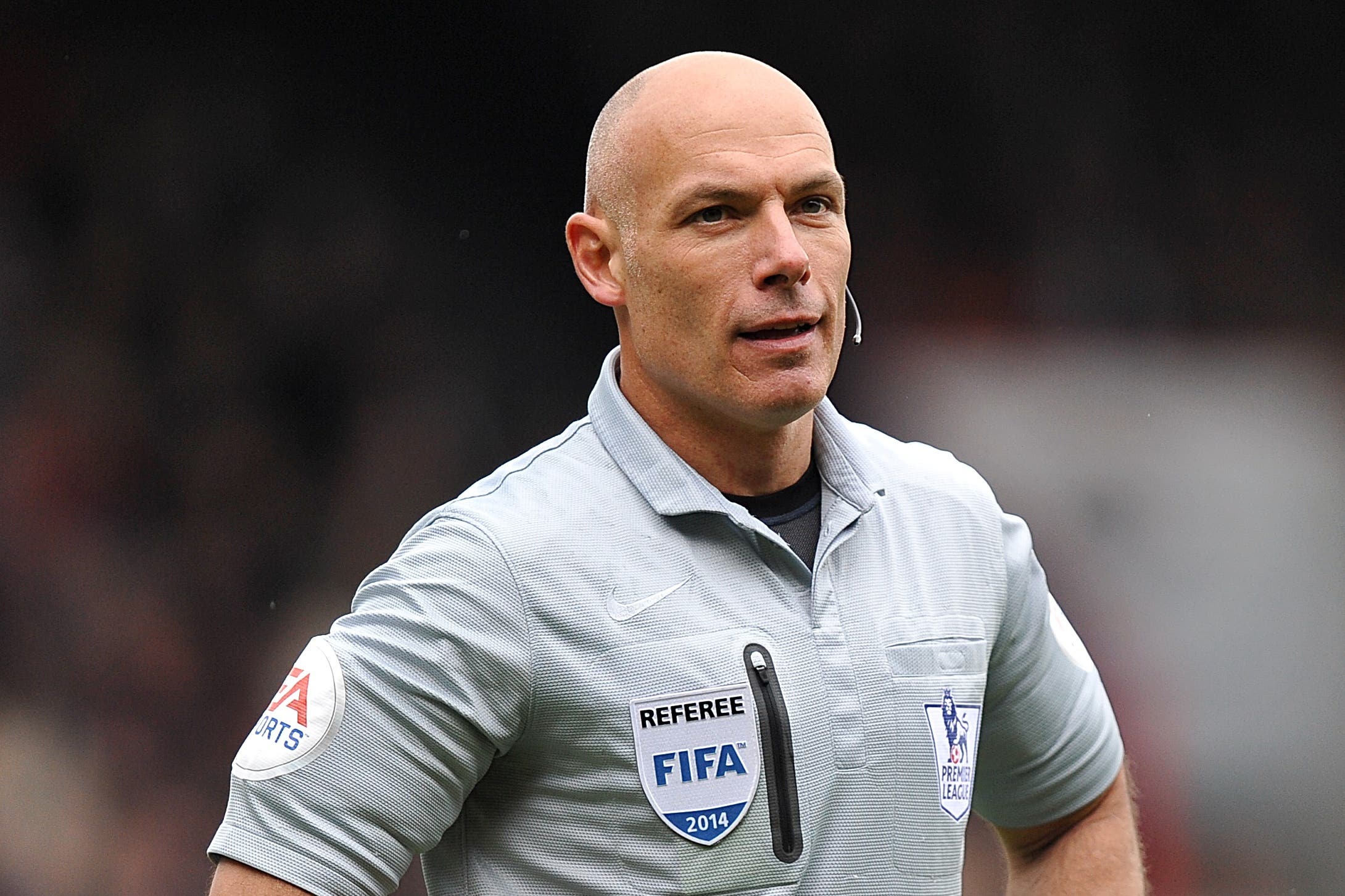Howard Webb keen to make refereeing decisions more transparent to fans
Webb joined Professional Game Match Officials Limited as its chief refereeing officer earlier this year.

New Premier League referees’ chief Howard Webb wants to shed more light on how decisions are reached between officials and VARs this season.
Webb, who refereed the 2010 World Cup final, understands the frustration of fans over the apparent lack of transparency with decision-making, and is working on ways to make officiating more open and accountable.
Webb joined Professional Game Match Officials Limited earlier this year, having been general manager at the Professional Referee Organization (PRO) in the United States.
PRO posted weekly reviews of contentious decisions from the most recent Major League Soccer action on its YouTube channel, including the audio of discussions between the on-field officials and the VARs.
MLS also trialled the live broadcast of the audio between officials and VARs during a small number of matches in 2020 but required FIFA approval to continue with the project.
Webb accepts the football culture in England is different to the US, and is wary of any unintended consequences of over-exposure of referees in the media, but is determined to make the process more visible.
“We want to try to change perception a little bit, be a bit more transparent and open,” he said.
There is probably going to be a world at some point where that communication will be made available. No problem, we've got nothing to hide.
“Not everything we did in Major League Soccer will work over here, it is a different environment, but some things will.”
Asked whether fans in England might get to hear audio of the conversations between officials and VARs in some form during the current season, Webb said: “I hope we get to that point where we are able to share some of that. I think people will find it interesting.
“Even if people don’t agree with the final decision, if people understand the process and rationale they are much more accepting of the decision. We are not going to please everyone.
“There is probably going to be a world at some point where that communication will be made available. No problem, we’ve got nothing to hide.
“The level of professionalism and the way they communicate is really good over here.
“I am looking forward to drawing that curtain back so everybody can see it.
“It is just giving a better understanding so they don’t face unfair or unwarranted criticism.
“I know the frustrations. I have been to games where the referee has made a decision and you never hear from the ref or anybody around it and there was a mystery over why that decision was made.
“I understand why that causes frustration and even resentment at times. If we can look at ways to deal with that, then great.”
VAR remains a hugely controversial tool in the game, with debates still raging over the bar for intervention and whether it has a place in football at all.
Webb said: “We have got to get the focus back on to the on-field decision making.
“There has been loads of noise about VAR in the last few years. It is a great tool but there has been so much noise. That is one of the aspects I’ve been asked to look at.
“I have talked with the referees about the philosophy on VAR, it is not too dissimilar to what they have been told previously. They have worked to a high bar here so far, in the same way we saw in Euro 2020, a similar sort of mentality.
“We have talked about going to the screen and keeping your decision.”
Webb said there would be no immediate change in the way referees in England calculate added time.
The focus on effective playing time and accounting for all stoppages including goal celebrations at the World Cup led to matches lasting 101 minutes on average.
The average in the first 16 rounds of this Premier League season was 98 minutes.
“It seems like in the World Cup they were being much more prescriptive around adding absolutely everything in a way that then led to a high number,” Webb said.
“Thinking back to my time in MLS, we’d have teams come on to us and say there should have been 16 minutes added at the end.
“So then you go through the game, and if you count everything maybe they had a case, but 16 minutes would just be way out of line of expectation.
“If you put 16 minutes up people would say ‘what are you doing?’
“So you’ve got to take people with you. You can’t just do it randomly. What we’re doing at the moment is kind of trying to find a sweet spot.
“We’re in line with other top leagues in the world by putting something that is credible on the board that accounts for time wasted, accounts for stoppages, that penalises people that do delay the game.
“Could you stop and account for more? Yeah, you could. If that’s the direction that we’re asked to take, fine.
“There are a range of issues that might knock on as well around how long people expect games to last – is it what people want?
“Is that what the coaches want, these extra 12 minutes when players are fatigued?
“I think that’s where the biggest difference (at the World Cup) was – that focus on specific time around goal celebrations and some other bits and pieces, as opposed to that search for a more credible amount of time on the board that is in line with what both teams expect.”
Bookmark popover
Removed from bookmarks